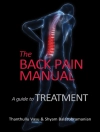This Briefs Series book illustrates in depth a concept of healthcare management engineering and its domain for hospital and clinic operations. Predictive and analytic decision-making power of management engineering methodology is systematically compared to traditional management reasoning by applying both side by side to analyze 26 concrete operational management problems adapted from hospital and clinic practice. The problem types include: clinic, bed and operating rooms capacity; patient flow; staffing and scheduling; resource allocation and optimization; forecasting of patient volumes and seasonal variability; business intelligence and data mining; and game theory application for allocating cost savings between cooperating providers.
Detailed examples of applications are provided for quantitative methods such as discrete event simulation, queuing analytic theory, linear and probabilistic optimization, forecasting of a time series, principal component decomposition of a data set and cluster analysis, and the Shapley value for fair gain sharing between cooperating participants. A summary of some fundamental management engineering principles is provided.
The goal of the book is to help to bridge the gap in mutual understanding and communication between management engineering professionals and hospital and clinic administrators.
The book is intended primarily for hospital/clinic leadership who are in charge of making managerial decisions. This book can also serve as a compendium of introductory problems/projects for graduate students in Healthcare Management and Administration, as well as for MBA programs with an emphasis in Healthcare.
Tabella dei contenuti
Traditional Management and Management Engineering.- Dynamic Supply and Demand Balance Problems.- Linear and Probabilistic Resource Optimization and Allocation Problems.- Forecasting of Time Series.- Business Intelligence and Data Mining.- The Use of Game Theory.- Summary of Some Fundamental Management Engineering Principles.- Concluding Remarks.












